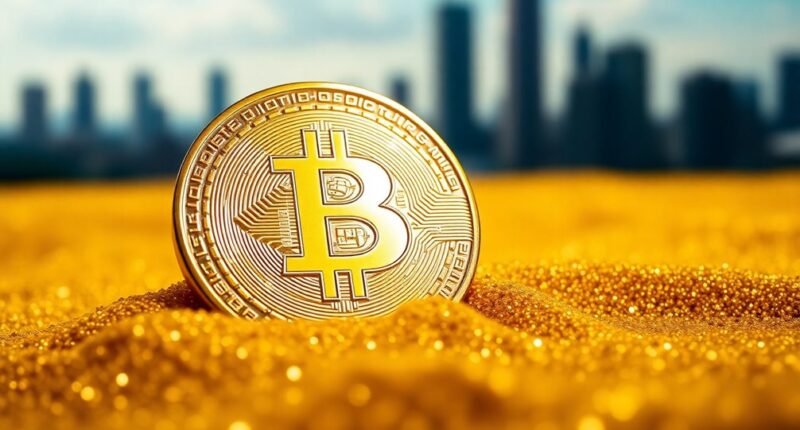When you consider Bitcoin, it's easy to label it as just digital gold. But if you look closer, you'll find it offers much more than the allure of scarcity. Its divisibility, portability, and growing acceptance as a payment method reveal its true potential. What if you could harness its volatility for unique investment opportunities? Understanding these facets might just change how you view this asset. What lies beneath the surface?

The value of Bitcoin is shaped by a unique combination of attributes and market dynamics. You might find it fascinating that Bitcoin's supply is capped at 21 million, creating a level of scarcity similar to precious metals like gold. This limited supply drives demand, making it an attractive asset for those looking to invest in something that isn't subject to inflationary pressures. Unlike traditional currencies, Bitcoin's scarcity directly influences its value, as fewer Bitcoins means higher potential worth.
Another important attribute is its divisibility. Each Bitcoin can be divided into eight decimal places, known as satoshis. This flexibility allows you to engage with Bitcoin in various amounts, making it accessible to everyone, regardless of their financial situation. As more merchants begin accepting Bitcoin as a valid medium of exchange, its acceptability continues to grow. You can now use Bitcoin to purchase goods and services globally, enhancing its utility beyond just an investment vehicle.
Portability also plays a significant role in Bitcoin's value. With just an internet connection, you can send or receive Bitcoin across borders, making it a convenient option for global transactions. In a world where digital interactions are becoming the norm, this aspect of Bitcoin stands out. Its durability as a digital asset ensures that it remains intact as long as digital storage exists, unlike physical assets that can deteriorate over time.
When you compare Bitcoin to traditional assets, you'll notice that it's more volatile than gold. While this volatility can be a double-edged sword, it also means that Bitcoin offers unique opportunities for high returns. However, this characteristic complicates its role as a store of value, as its price can fluctuate drastically based on market sentiment, media coverage, and regulatory changes. Speculation among investors contributes significantly to these price swings, reinforcing the notion that Bitcoin's market behavior is often driven by fear and greed.
Looking ahead, Bitcoin's future potential is tied to increasing adoption and network effects. As more people join the ecosystem, its utility and value grow. Yet, competition from other cryptocurrencies and regulatory developments pose challenges that could impact its price. Economic conditions also play a critical role in how Bitcoin is perceived, especially as a hedge against instability.









